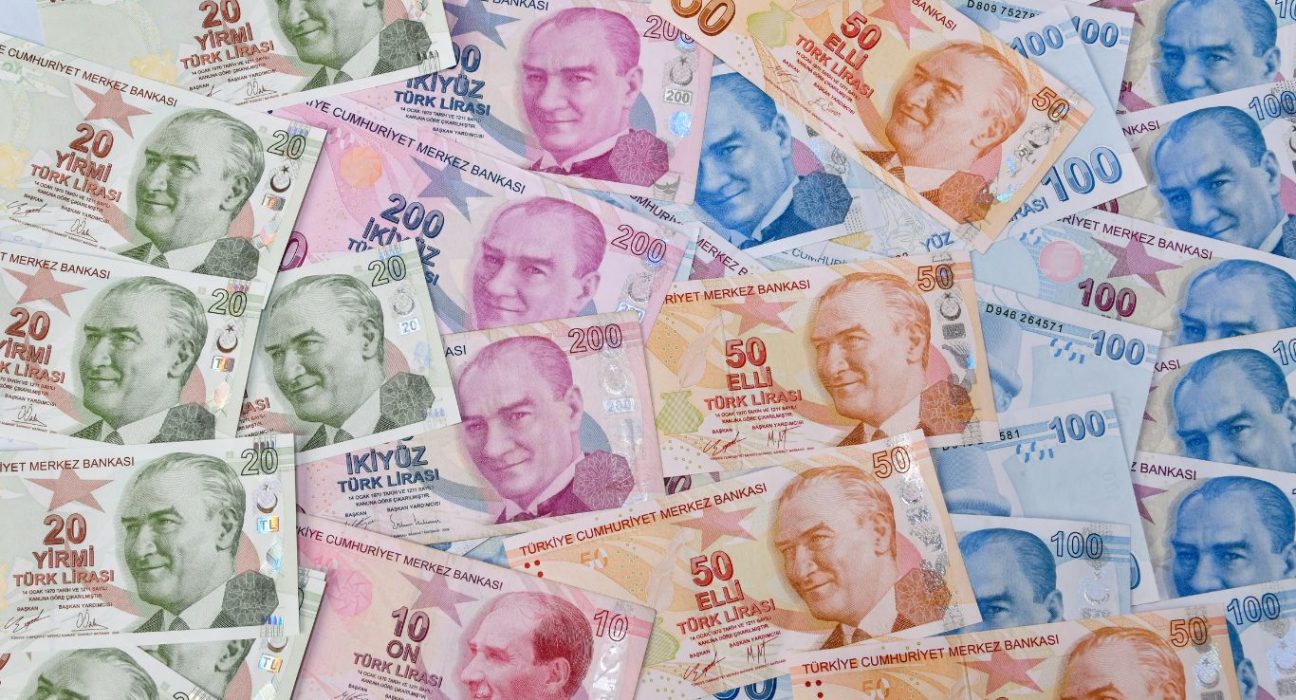The Turkish lira faced a steep decline, plunging by 1.8% to a new record low against the U.S. dollar on Monday. This depreciation occurred shortly after the central bank of Turkey implemented measures to simplify rules governing lenders’ holdings and foreign deposits. The move followed a sharp interest rate hike by the bank in the previous week. As the lira dropped to 25.76 against the dollar, surpassing the previous week’s all-time low of 25.74, concerns about the stability of the Turkish economy and its currency have heightened.
Central Bank Implements Simplified Regulations
In an attempt to streamline regulations and provide clarity to the banking sector, the central bank of Turkey decided to simplify rules related to lenders’ holdings and foreign deposits. These measures were introduced as a follow-up to the bank’s recent interest rate hike, which aimed to curb inflationary pressures and stabilize the economy. By providing a more transparent framework for lenders and foreign investors, the central bank sought to address concerns and facilitate smoother transactions.
Impact on the Turkish Lira
The Turkish lira, however, reacted negatively to the central bank’s move, experiencing a rapid slide against the U.S. dollar. The currency’s value dropped to a fresh record low of 25.76, surpassing the previous week’s all-time low of 25.74. The sudden depreciation indicates the prevailing uncertainty and lack of confidence among investors in the stability of the Turkish economy. The continued downward trend of the lira poses significant challenges for businesses, consumers, and the overall economic outlook of the country.
Concerns over Economic Stability
The steep decline of the Turkish lira against the U.S. dollar raises concerns about the stability of the Turkish economy. A weakening currency affects various aspects of the economy, including imports, exports, and foreign investments. For businesses, the depreciating lira increases the cost of imported goods and raw materials, potentially leading to higher production costs and reduced profit margins. Additionally, consumers may face rising prices for imported goods and experience a decrease in purchasing power.
Inflationary Pressures and Interest Rate Hike
The central bank’s decision to hike interest rates was aimed at combating inflationary pressures, which have been a persistent challenge for the Turkish economy. By raising interest rates, the central bank seeks to reduce borrowing and dampen consumer spending, ultimately curbing inflation. However, the interest rate hike alone might not be sufficient to address the complex inflationary dynamics in the country. The impact of inflation on the Turkish lira’s value requires comprehensive measures and long-term structural reforms to restore stability and confidence.
Political and Economic Factors
The Turkish lira’s decline is influenced by both political and economic factors. Turkey’s geopolitical situation, internal policies, and diplomatic relations with other countries can impact investor sentiment and the currency’s performance. Additionally, economic indicators such as the country’s current account deficit, inflation rate, and fiscal policies play a crucial role in determining the value of the Turkish lira. Addressing these factors holistically is crucial for stabilizing the currency and restoring economic confidence.
The Need for Structural Reforms
To address the ongoing challenges and restore stability to the Turkish economy, structural reforms are essential. These reforms should focus on strengthening institutions, enhancing transparency, improving fiscal discipline, and attracting foreign direct investment. By implementing comprehensive reforms, Turkey can create an environment conducive to sustainable economic growth, reduce reliance on external financing, and bolster investor confidence.
Conclusion
The Turkish lira’s recent plunge to a record low against the U.S. dollar reflects the prevailing uncertainties surrounding the country’s economy. The implementation of simplified regulations by the central bank, aimed at providing clarity to lenders’ holdings and foreign deposits, triggered a negative market reaction. Addressing the underlying causes of economic instability, such as inflationary pressures, political factors, and the need for structural reforms, is crucial for restoring stability and confidence in the Turkish economy.










